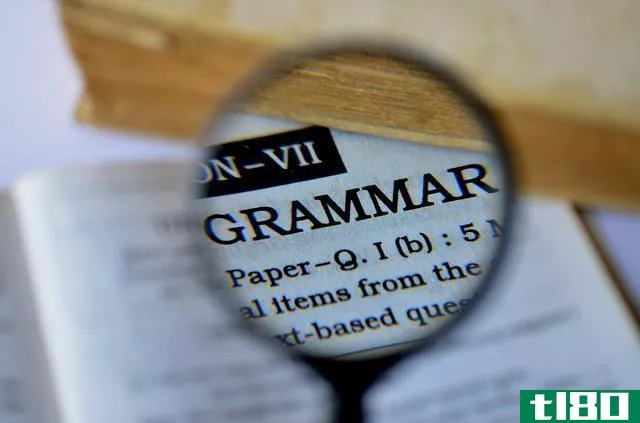什么是英语语法中的名词性从句(或名词性从句)?(a noun clause (or nominal clause) in english grammar?)
在英语语法中,名词从句是一种从属从句,在句子中充当名词(即主语、宾语或补语)。也称为名词性从句。

英语中两种常见的名词从句是that从句和wh从句:
- 我相信每件事的发生都是有原因的。
- 我怎么知道我在想什么,直到我明白我在说什么?
名词从句的实例与观察
"When Mrs. Frederick C. Little's second son arrived, everybody noticed that he was not much bigger than a mouse." — E.B. White, Stuart Little, 1945 "What I like doing most of all in the evenings, these days, is sitting in a gormless stupor in front of the television, eating chocolate." — Jeremy Clarkson, The World According to Clarkson. Penguin Books, 2005 "A university is what a college becomes when the faculty loses interest in students." — John Ciardi, Saturday Review, 1966 "I know that there are things that never have been funny, and never will be. And I know that ridicule may be a shield, but it is not a weapon." — Dorothy Parker "I believe that there is a subtle magnetism in Nature, which, if we unconsciously yield to it, will direct us aright." — Henry David Thoreau, "Walking" "The thought of stars contributed to the power of his feeling. What moved him was a sense of those worlds around us, our knowledge however imperfect of their nature, our sense of their possessing some grain of our past and of our lives to come." — John Cheever, Oh What a Paradise It Seems. Random House, 1982 "Whoever was the person behind Stonehenge was one dickens of a motivator, I'll tell you that." — Bill Bryson, Notes From a Small Island. Doubleday, 1995 "How we remember, what we remember, and why we remember form the most personal map of our individuality." — Christina Baldwin "How people knew when they were being trailed he found himself unable to imagine." — Edmund Crispin [Robert Bruce Montgomery], Holy Disorders, 1945 "This is the story of what a Woman's patience can endure, and of what a Man's resolution can achieve." — Wilkie Collins, The Woman in White, 1859 "I knew exactly how clouds drifted on a July afternoon, what rain tasted like, how ladybugs preened and caterpillars rippled, what it felt like to sit inside a bush.” — Bill Bryson, The Life and Times of the Thunderbolt Kid. Broadway Books, 2006 "That dogs, low-comedy confederates of small children and ragged bachelors, should have turned into an emblem of having made it to the middle class—like the hibachi, like golf clubs and a second car—seems at the very least incongruous." — Edward Hoagland, "Dogs, and the Tug of Life"作为直接宾语的名词性从句
"All sentences, then, are clauses, but not all clauses are sentences. In the following sentences, for example, the direct object slot contains a clause rather than a noun phrase. These are examples of nominal clauses (sometimes called 'noun clauses'): I know that the students studied their assignment. I wonder what is making Tracy so unhappy. These nominal clauses are examples of dependent clauses—in contrast to independent clauses, those clauses that function as complete sentences." — Martha Kolln and Robert Funk, Understanding English Grammar, 5th ed., Allyn and Bacon, 1998 "A Colorado study found that the average homeless person cost the state forty-three thousand dollars a year, while housing that person would cost just seventeen thousand dollars." — James Surowiecki, "Home Free?" The New Yorker, September 22, 2014名词从句起始语
"We use various words to start noun clauses. ... "These words include the word that, which in its role as a noun clause starter is not a relative pronoun, for it serves no grammatical role in the clause; it just starts the clause. For example: The committee stated that it would follow the agent's policy. Here the noun clause serves the noun role of direct object of the transitive verb stated. But a careful look at the clause reveals that the word that does not serve any role within the clause, other than simply to get it going. "Other noun clause starters do serve grammatical roles within the clause. For example: We know who caused all the trouble. Here the noun clause starter is the relative pronoun who. Notice that inside the noun clause who serves as the grammatical subject of the verb caused. "Additional words serve as noun clause starters. A relative adverb can get one going: How he won the election mystified the pundits. So can a relative pronoun acting as an adjective: We know which career she will pursue. In these two sentences, how is an adverb modifying the verb won, and which is a relative-pronoun-adjective modifying the noun career." — C. Edward Good, A Grammar Book for You and I—Oops, Me! Capital Books, 2002 "I have run, I have crawled, I have scaled these city walls, These city walls Only to be with you, Only to be with you. But I still haven't found what I'm looking for." — written and performed by U2, "I Still Haven't Found What I'm Looking For." The Joshua Tree, 1987- 发表于 2021-09-21 04:11
- 阅读 ( 211 )
- 分类:语言
你可能感兴趣的文章
哪里(where)和在关系从句中(which in relative clauses)的区别
...们添加到句子中的信息类型。 目录 1. 概述和主要区别 2. 什么是关系从句 3. 如何在关系从句中使用Where 4. 如何在关系从句中使用Which 5. 并列比较-表格形式的关系从句中的Where vs Which 6. 摘要 什么是关系从句(a relative clause)? 关系...
- 发布于 2020-10-17 18:51
- 阅读 ( 275 )
那个(that)和哪一个(which)的区别
...wn. 交换一下(interchange that) vs. 哪一个(which) 尽管存在这一语法规则,但许多人在常用语中经常将which与限制性从句和非限制性从句连用。看看下面的两个例子。 “谁偷了我昨天买的衣服?” “谁偷了我昨天买的衣服?” 许多人...
- 发布于 2021-06-27 05:38
- 阅读 ( 383 )
语法(grammar)和标点符号(punctuation)的区别
...note that different languages have different grammars. For example, in the English language, adjectives are placed before the noun, but in French, adjectives are placed after the noun. 什么是标点符号(punctuation)? 标点符号是一组符号,用于规范文本,并通过将文本分成...
- 发布于 2021-06-27 07:12
- 阅读 ( 604 )
名词从句(noun clause)和形容词从句(adjective clause)的区别
...词从句起名词的作用,而形容词从句起形容词的作用。 什么是名词从句(noun clause)? 名词从句可以定义为充当名词的从属从句。名词从句不能独立成句,因为它不能表达完整的思想。名词短语通常以how、that、what、whatever、when、w...
- 发布于 2021-06-27 15:23
- 阅读 ( 756 )
定义(defining)和非限定关系从句(non defining relative clauses)的区别
...句。这是定义关系从句和非定义关系从句的主要区别。 什么是限定关系从句(a defining relative clause)? 定义相对从句是指提供其所描述名词的基本信息的从句。这些也被称为限制性相对子句或识别相对子句。这些子句提供了识别名...
- 发布于 2021-06-27 15:30
- 阅读 ( 1470 )
条款(clause)和句子(sentence)的区别
...立的意思,而一个从句并不总是表达一个独立的意思。 什么是从句(a clause)? 从句是一组包含主语和谓语的词。虽然一个从句有时可以充当一个句子,因为它包含一个主语和一个动词,但它不一定是一个完整的句子。也就是说;...
- 发布于 2021-06-27 21:46
- 阅读 ( 323 )
语法(grammar)和语法(syntax)的区别
主要区别语法(main difference grammar) vs. 语法(syntax) Grammar and Syntax are two overlapping disciplines that deal with the c***truction of words, phrases and sentences in a language. Since both syntax and grammar deal with rules and structures of language, many people assume tha...
- 发布于 2021-06-28 01:01
- 阅读 ( 679 )
在线学习英语语法和词汇
...文章“在线学习英语”将帮助你掌握英语的基础知识。 English can be basically studied under several sub-branches. Vocabulary, Grammar, Pronunciation, Punctuation, and Spelling are these branches. 词汇 词汇是指语言中的词汇。它是沟通的基本和有用的工具。...
- 发布于 2021-06-28 04:55
- 阅读 ( 235 )
对象(object)和英语语法补语(complement in english grammar)的区别
...宾语,补语,句法 什么是英语语法中的宾语(an object in english grammar)? 剑桥词典将英语语法中的宾语定义为“受动词作用影响的名词或名词短语”。简言之,客体是受主体行为影响的东西。 英语语法的基本句法或句子结构是-主...
- 发布于 2021-06-30 20:04
- 阅读 ( 507 )
介词(preposition)和结合(conjunction)的区别
...conjunction) Prepositi*** and conjuncti*** are two significant elements in grammar. Prepositi*** and conjuncti*** can be confusing to a student since both of them are connecting words. The main difference between preposition and conjunction is that conjuncti*** connect two clauses or sentences while...
- 发布于 2021-07-02 08:11
- 阅读 ( 894 )















